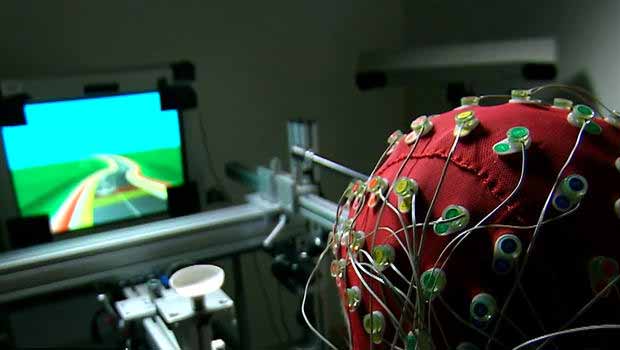
Growing up, I have always played video games. Since the days of Atari and NES, I have been a gamer. That also means I have been told (by many people) how detrimental video games are- both for my mental health, and for my general health. That didn’t deter me though, because I knew what I felt and what I learned from video games was very helpful to me in numerous ways. Turns out I was right, and science is finally here to back me up!
Action-based games improve accurate decision-making response time by 25%

Games that are fast-paced require you to think quicker and make decisions faster. Most of the time, you are trying not to get killed and that means lightning-quick reactions are a must. How does this help in a real life situation? According to a study from the University of Rochester, those who play action games have a better understanding of what is going on around them, and are able to make decision faster. Researchers conducted a test where dozens of 18-25 year olds were split into two groups. Group A played 50 hours of the action game “Call of Duty 2” and “Unreal Tournament”, and group B played 50 hours of “The Sims 2.” What they found was that those in group A were able to complete tasks and deduce answers to situation-related questions 25% faster than those who were in group B. Also, their answers were just as accurate! “It’s not the case that the action game players are trigger-happy and less accurate: They are just as accurate and also faster,” study researcher Daphne Bavelier said in a statement. “Action game players make more correct decisions per unit time. If you are a surgeon or you are in the middle of a battlefield, that can make all the difference.”
Playing video games can give you more control over your dreams
Jayne Gackenbach conducted research at Grant MacEwan University that found those who play video games have more control over their dreams and have decreased nightmares. She says, “If you’re spending hours a day in a virtual reality, if nothing else it’s practice. Gamers are used to controlling their game environments, so that can translate into dreams.”
There have been a few similar studies that have shown gamers to be lucid dreamers, which means that they have conscious control over the events in their dreams.
Researchers believe that this may happen due to the “practice” that gamers have living in another reality.
Video games improve your eyesight

Daphne Bavelier led another study from the University of Rochester regarding video games, in 2007. This study found that playing video games can improve one’s vision through something called “contrast sensitivity.” Basically, contrast sensitivity is when someone is more sensitive to moderately different shades of colour.
Additional findings revealed that people who played action-based video games averaged 58% better at perceiving minuscule differences in contrast.
“When people play action games, they’re changing the brain’s pathway responsible for visual processing,” said Bavelier. “These games push the human visual system to the limits and the brain adapts to it. That learning carries over into other activities and possibly everyday life.”
Video games improve memory, focus, and multitasking abilities in adults

There are many learning games out there that can offer challenges to adults, but some of them are more beneficial than you know. One game called NeuroRacer is amongst those. NeuroRacer involves swerving around obstacles while picking out specific road signs at the same time, and was found to “improve the short-term memory and long-term focus of older adults,” as reported by the New York Times.
A study led by J. A. Anguera at the University of California, tested a group of adults aged 60-85. The individuals in this group played NeuroRacer for a total of 12 hours a month and were given 6 months conduct the entirety of the test. After the 6 month period, the older adults had improved memory skills, were better at multitasking, and had improved attention skills. Nature journal of science cites the study, which says, “These findings highlight the robust plasticity of the prefrontal cognitive control system in the ageing brain, and provide the first evidence, to our knowledge, of how a custom-designed video game can be used to assess cognitive abilities across the lifespan, evaluate underlying neural mechanisms, and serve as a powerful tool for cognitive enhancement.”
Video games help children improve reading and motor skills
There have been numerous studies done on the benefit of playing video games as children, and they all say the same thing: video games improve cognitive function and motor skills. One such study, published in the journal Cell, researched children with dyslexia who played video games and found their reading skills to be more accurate, and to be faster.
Another study, this one from Deakin University in Australia found that children who played interactive games (like Wii) had better object motor skills than those who played non-interactive games.
Both of these studies show us that video games can be very beneficial to growing children, and to those with learning disabilities.
If you’d like to watch a TED talk by lead researcher Daphne Bavelier on her findings related to how video games affect the brain, I’ve got that right here for you. It’s definitely worth the watch.
Gaming is a huge business worldwide. In 2014, the gaming industry had revenue over $100 billion, and this year is expected to close above $125 billion. With statistics like that, it’s easy to see that gaming will be a part of our lives for a while. Good thing it’s not bad for us!
Written by Raven Fon


